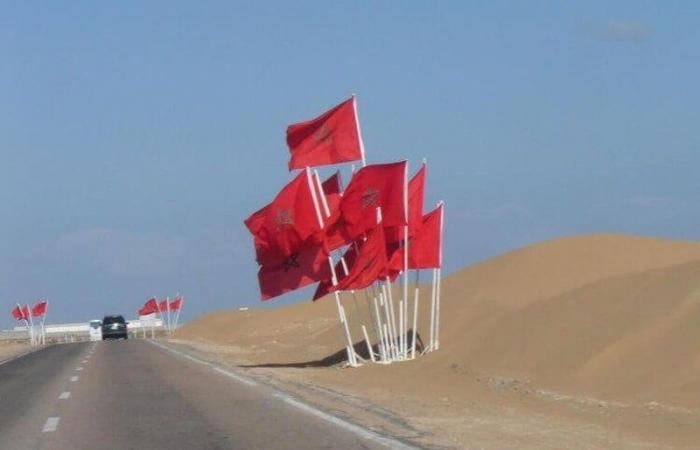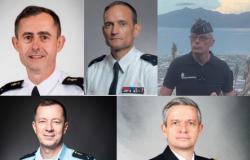In 2024, Moroccan diplomacy signed new resounding victories in reaching an international consensus linked to its sovereignty over the Sahara, the primary cause that the Kingdom defends. So what are the prospects for 2025?
The success of Moroccan diplomacy lies not only in the justice of the cause it carries, but also in the skillful management of international relations, in particular with the great world powers and within the African continent.
Active diplomacy for the sovereignty of Morocco
Thanks to active diplomacy in favor of regional stability, the Kingdom has succeeded in integrating the Sahara question into a broader framework of cooperation, in particular by strengthening its links with the countries of the Sahel and by playing a central role in initiatives of peace and security.
In 2024, several countries reaffirmed their position in favor of the Moroccan Sahara or praising the autonomy initiative proposed by Morocco as a solution to the conflict, while new support for the legitimacy of the Kingdom was added such as that of France who affirmed that “the present and future of Western Sahara are part of the framework of Moroccan sovereignty”.
Other victories for Moroccan diplomacy have been achieved this year, notably with the withdrawal of recognition of Latin American countries to the Polisario separatist entity, like Panama and Ecuador. Until now a stronghold of support for the separatist militia, several Latin American countries are beginning to change their position in favor of international legitimacy.
This support strengthens Morocco’s position on the world stage and makes any attempt to legitimize the separatism of the Polisario supported by Algeria more difficult. The year 2024 marked a new period of isolation for the separatists and denoted a greater strengthening of the consensus around the Moroccan solution, thus consolidating the diplomatic leadership of the kingdom.
Strengthening the international consensus around Morocco
Contacted by Hespress FR to deliver her reading of this year in terms of diplomacy, the political scientist, Malika Zekhnini, confirmed that the Sahara question has experienced great dynamics. “The question of our cause, that of our national unity, has for years been a conflict ignored at the international level”she said, noting the paradigm shift.
« We were only waiting for the October sessions for the renewal of the MINURSO mandate in the Sahara, and these were critical moments for Moroccan diplomacy where we had our hands on our hearts. Then there have been the dynamics of recent years, in particular the American position on the issue, which is closely linked to a set of rapid transformations that have affected the entire world,” she emphasizes.
Recalling that the global system is evolving today at a considerable speed, she considered that it is natural that all conflicts and disputes undergo transformations. “But Moroccan diplomacy, which we hoped would react effectively to these international developments, found answers, and this was effectively reflected in the dynamics that marked this issue,” noted the professor at the Multidisciplinary Faculty of Sultan Moulay Slimane University.
There have been a number of recognitions of the relevance of the Moroccan vision for a solution, whether from the positions of the great powers, in particular the permanent members of the Security Council, or the action of several countries which have withdrawn their recognition of the pseudo-State, an entity which has no legal or real existence, “which says a lot”she estimated.
Moroccan diplomacy for 2025
“For us, the perspective of this issue is that it should be resolved within the framework of the United Nations. In other words, these dynamics must always end with a solution on which we agree. affirmed the expert in international relations, adding that “the bet is that international transformations always remain in favor of Morocco, and it is crucial to respond appropriately to close this file definitively.”
“This is an issue that is before the Security Council, classified as an international conflict. I think we have taken great steps and today we can move forward and reach the final speed. The bet is that international transformations always remain in favor of Morocco, and it is crucial to respond appropriately to close this case definitively,” notes the political scientist again.
As for how to continue this positive dynamic, particularly to obtain broader European support, Malika Zekhnini noted the gradual change in Europe. “A large number of European Union countries now support Morocco”However, “the question of our national unity is governed by a fundamental principle that King Mohammed VI taught us: Morocco in its Sahara, and the Sahara in its Morocco.”
“Today, the political debate is important, but we also have a European judicial system which is significant. Europe for us is a symbol of democracy, freedom and human rights, however, we know that it is not immune to pressures, lobbies, and phenomena that we do not cannot always be linked to democracy”, she noted, adding that there have been developments at the level of political systems and parties.
“This requires us to react to the election results in certain countries. It is difficult to remain passive in this context,” she pointed out. Thus, according to the international relations professor, the question of recognition therefore has a political dimension, and if “the struggle remains mainly political, it is also first and foremost legal”she indicated while recalling that it is at the level of the United Nations that the work must be done to obtain support in resolving this problem.
And to add: “The main action today should be to support Morocco’s position as a solution to this conflict. The problem must be resolved within the framework of the United Nations, and this question should be closed, without having to return to the questions of recognition. Because recognition, in politics, fluctuates. A country recognizes today, but can withdraw that recognition tomorrow, and this could change with new elections. We cannot allow our country to become hostage to these internal changes in other countries”.
According to her, the time has come for the great powers to exert pressure on the other parties to bring them back to the negotiating table and find a mutually acceptable solution within the framework of the autonomy initiative proposed by Morocco. “This case must be closed definitively and it must no longer be a tool of blackmail for our country,” she believes.
Malika Zekhnini also stressed the need for “these recognitions are translated into concrete actions, by holding round tables, with the aim of achieving the Moroccan solution: autonomy, as the most accomplished form of self-determination for those who still cling to this principle. It is the fairest solution and which best responds to reality.”
“Even former colonial powers that have ties to this issue must not only express their support, but also translate that support into concrete actions, into official documents that show the truth and help resolve this issue,” she argued.
Outlook for the file in the coming months
Regarding the prospects, the political scientist affirmed that international politics operates according to the logic of power and balance, recalling that the great powers have every interest in the North African region being stable, especially more than they are betting a lot on Africa, noting that an effort must therefore be made in this direction.
As for the round tables, still blocked by Algeria’s refusal, they should come back with a different spirit and another approach, she said. “The world of today is no longer the world of yesterday. As the King said, the Morocco of today is not that of yesterday. These transformations between yesterday and today mean that today, if round tables are held, they will be different from those of the past. We just need collective will, on an international and regional scale, for this problem to find its solution”declared our interlocutor.
And to conclude that diplomacy in all its forms, notably parallel diplomacy, “must focus not on defending our position, but rather on correcting these misunderstandings about our country in various international platforms and events (…) We are the real holders of this cause, the real owners of this land and it “It’s us who defend it.”






